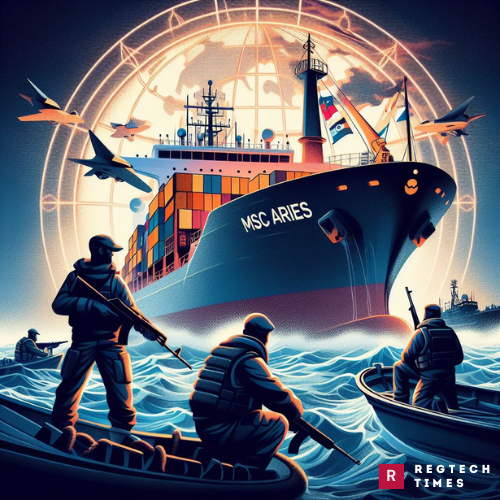In a world shaped by intricate international relations and strategic maneuvering, Australia’s significant diplomatic stance by imposing targeted sanctions on key Iranian entities and individuals.
This decision follows Iran’s perceived destabilizing behavior in the Middle East, notably exemplified by the recent seizure of the MSC Aries, a civilian vessel with international crew members aboard. As tensions escalate, Australia’s firm stance underscores the global community’s commitment to upholding peace and security in the region.
Background on Iran’s Role in the Region
Iran, historically the core of the storied Persian empire, has maintained a significant presence in the region for centuries. Its influence is rooted in various factors, including its substantial oil reserves, its distinction as the most populous Shia Muslim nation globally, and its proactive backing of political and armed factions, some of which are designated as terrorist organizations by the United States. Since 1979, Iran’s aspirations for regional dominance have evolved, leading to a notable impact on the geopolitical landscape of the Middle East.
The Seizure of MSC Aries
One of the entities targeted includes Iran’s Islamic Revolutionary Guard Corps (IRGC) Navy. This military branch has been in the spotlight recently for its actions in international waters. The IRGC Navy seized an Israeli-linked, Portuguese-flagged, civilian vessel named MSC Aries on April 13. This act of aggression has raised eyebrows in the international community, especially considering the vessel had 16 Indian crew members on board. The incident has raised international concerns about the safety of maritime trade routes and the freedom of navigation in international waters.
Sanctioned Individuals
The sanctions imposed by Australia are not just on entities but also on individuals. Among the senior officials sanctioned are Iran’s Defense Minister Mohammad Reza Ashtiani and the Commander of the IRGC Qods Force, Brigadier General Esmail Qaani. These individuals hold significant positions within Iran’s military structure, and their inclusion in the sanctions list sends a clear message to Iran that its actions have consequences and that the international community will not stand by idly.
Australia’s Stand
Australia’s government, led by Prime Minister Anthony Albanese, has sanctioned 90 Iranian individuals and 100 Iranian-linked organizations. This action is in line with sanctions measures taken by their partners in recent weeks, following Iran’s unprecedented drone and missile attack on Israel in April. Australia’s decision to impose these sanctions underscores its commitment to maintaining peace and stability in the region.
Implications of the Sanctions
The sanctions imposed by Australia’s authority are not just symbolic. They carry significant implications for the targeted individuals and entities. These sanctions restrict the financial and operational capabilities of the targeted individuals and entities, thereby limiting their ability to continue their destabilizing activities. The sanctions also serve as a deterrent, discouraging other entities and individuals from engaging in similar activities.
The International Response
The seizure of the MSC Aries is a stark reminder of the volatile situation in the Middle East. The presence of 16 Indian crew members on the seized vessel brings the issue closer to home for many countries, including India. It underscores the need for a coordinated international response to ensure the safety and security of maritime trade routes. The international community must come together to address these challenges and ensure the freedom of navigation in international waters.
In conclusion, Australia’s sanctions on Iranian entities are a significant step in the right direction. They serve as a deterrent to Iran and other actors in the region who engage in destabilizing activities. The international community must stand united against such actions to ensure peace and stability in the Middle East. The world is watching, and it is crucial for nations to take a stand against actions that threaten international peace and security.


